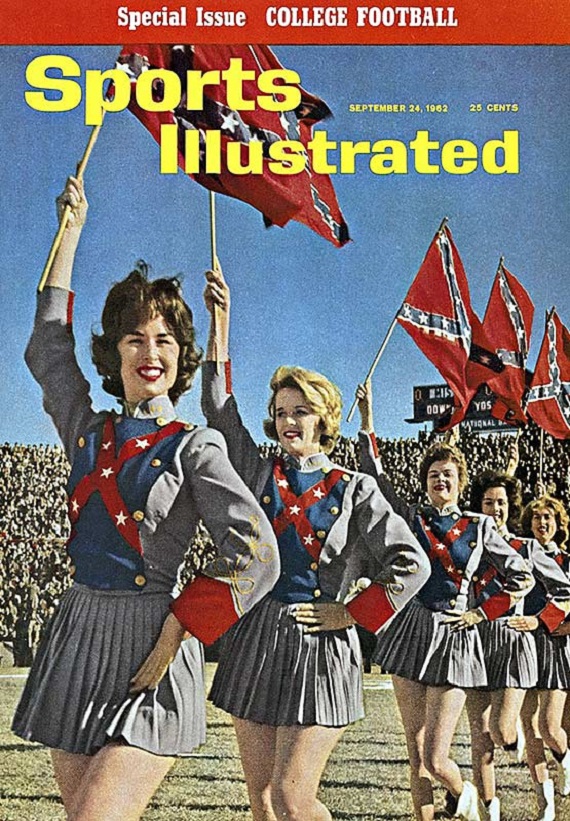“Defeat has not made ‘all our sacred things profane.’ The war has left the South its own memories, its own heroes, its own tears, its own dead. Under these traditions, sons will grow to manhood, and lessons sink deep that are learned from the lips of widowed mothers. It would be immeasurably the worst consequence of defeat in this war that the South should lose its moral and intellectual distinctiveness as a people, and cease to assert its well-known superiourity in civilization, in political scholarship, and in all the standards of individual character over the people of the North.” – Edward A. Pollard
The Persians and Romans, imperialistic as they were, respected the cultures of their conquered subjects. So long as tribute and levies were surrendered, the satrapies and provinces were left to live as they saw fit. The local authority of their rulers and the right to worship their own gods was preserved. By contrast, the Assyrians and Babylonians eradicated the cultures of the people they conquered. After subjugation, the survivors were torn from what was left of their homeland and deported throughout the empire. Uprooted and scattered, they would be forced to assimilate with other Assyrians and Babylonians. The Biblical story of Shadrach, Meshach, and Abednego – which were not even their real names, but Babylonian ones given to replace their original Hebrew– and Daniel defying the threats of their captors and refusing to betray their beliefs are examples of how hard these empires tried to make their subjects forget who they were and where they came from. Fortunately, God saved these courageous young Jews from the fiery furnace and the lion’s den. Today, Southerners living in the United States of Assyria are not nearly so blessed.
The University of Mississippi, formerly known as “Ole Miss,” is in the midst of purging itself of any and all Southern symbols. In 2003, the university jettisoned its old mascot, “Colonel Reb,” replacing the distinguished Southern gentleman with a “Rebel Black Bear,” whatever that means. Apparently, the very sight of a cartoon Southerner is simply too much for the sensibilities of today’s students. The University of Kansas is allowed to have its “Jayhawks” – Northern partisans from Kansas who terrorized Missourians during the so-called “Civil War” – yet Southerners are forbidden from honoring their own heroes. It is just a matter of time before some busybody figures out that the Louisiana State University “Tigers” are named after “Lee’s Tigers,” the salty Louisianans of the Army of Northern Virginia, and gets offended. “Hot boudin! Cold coush-coush! Come on Wildcats, let’s push, push, push!”
Apparently, the nickname “Ole Miss” is supposedly “racist,” since it is said to be something that slaves sometimes called their mistresses. Even if this specious claim were true, it is purely coincidental, as the name is meant to signify “Old Mississippi.” Is “white trash,” a derogatory term for poor whites coined by the slaves of wealthy families, to be deemed racist and offensive, too? Southerners, aware of how much whites and blacks have influenced their common culture in the South, cannot help but marvel at this bit of lunacy. Slavery, of course, should not be endorsed, but it does not follow that any trace of master-slave relations, even an affectionate term of endearment, should be abolished. Nevertheless, lest someone be offended, the use of “Ole Miss” will now be limited to its athletic program. For now, Southerners will still have “Ole Miss” on game day, although all it would take to lose that consolation prize would be a peep from one of America’s designated victim groups.
Furthermore, the street “Confederate Drive” will also be renamed to something more palatable to the fragile constitutions of today’s students. Perhaps “Diversity” Drive? “Sensitivity” Street? Unfortunately, in the cloistered realm of the ivory tower, art – in this case, satire – frequently imitates life.
The University of Mississippi has a rich Confederate heritage of which it should be – and once was – proud. At the outbreak of the war, the entire student body left to defend the people and places they loved from death and destruction. When the next semester began, no one came to class; they were all gone. These student recruits, known as the “University Grays,” formed Company A of the 11th Mississippi, and fought in some of the bloodiest battles in a war infamous for its bloodshed. At Pickett’s Charge, the University Grays drove farther than anyone into Federal lines, though suffering 100% casualties in the fight. Every soldier was either killed or wounded. Instead of taking pride in this heritage, however, the university is ashamed. For this reason, a plaque is to be affixed to a monument erected upon the spot where the University Grays enlisted for the war. Presumably, the plaque will be some sort of disclaimer to distance the university from what it sees as skeletons in its closet.
Dying from his wounds at Pickett’s Charge, twenty-three year-old Corporal Josiah Gage of the University Grays wrote his last words to his mother:
“This is the last you may ever hear from me. I have time to tell you that I died like a man. Bear my loss as best you can. Remember that I am true to my country and my greatest regret at dying is that she is not free and you and my sister are robbed of my worth whatever that may be…This letter is stained with my blood.”
According to the University of Mississippi, this man, who laid down his life for freedom and family, is a racist and a traitor unworthy of honor and remembrance. Once, the school rightly promoted the University Grays as a proud part of its identity. Now, the school cravenly apologizes for the University Grays and would like nothing better than for them to be forgotten.
The Sons of Confederate Veterans are fighting against the University of Mississippi in court, but they are treating the symptom rather than the curing the disease. So long as Americans remain race-obsessed emotional hypochondriacs, offended by anything and everything that is not strictly “politically correct,” the Confederacy will continue to be exiled from the public square. So long as Americans remain completely and utterly ignorant about the truth of slavery and secession, the Confederacy will continue to be stigmatic. Although there is a time for protesting, the fate of Southern heritage ultimately depends on changing the hearts and minds of the people. To do that, Southerners cannot only take to the streets waving Confederate flags, but must win the war of ideas.
The Romans understood the importance of heritage, which is why they kept “household gods” of their ancestors. “Not to know what happened before you were born is to be a child forever,” wisely noted Cicero. “For what is the time of a man, except it be interwoven with that memory of ancient things of a superior age?” To find the strength to face the future, people must look to the past. Therefore, a strong sense of identity rooted in history is necessary.
Make no mistake: the desecration of the Lee Chapel at Washington & Lee University was just the beginning. The outrage brigade is as relentless as it is shameless and will stop at nothing to eradicate every symbol of the Old South. If it were given free rein, it would demolish the monuments, exhume the graves, burn the flags, and rename all the schools and streets. If Washington & Lee is willing to dishonor its own namesake for the sake of six malcontents, then nothing is sacred. It is truly open season on all things “Confederate” – what Edward Pollard called “the memory of noble deeds” and a “deathless heritage of glory.”







